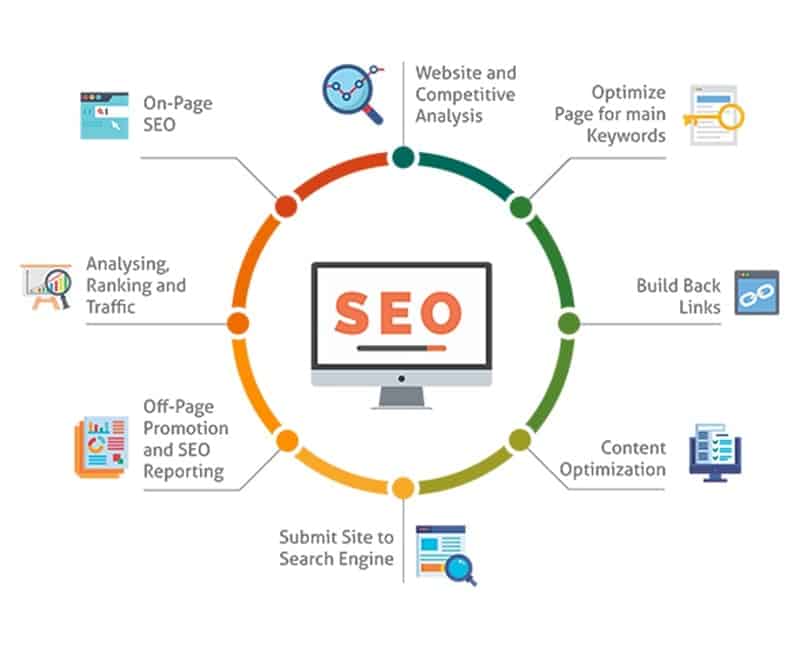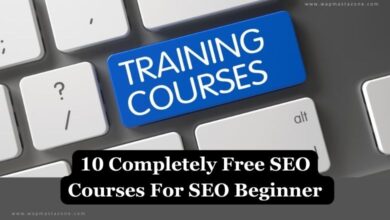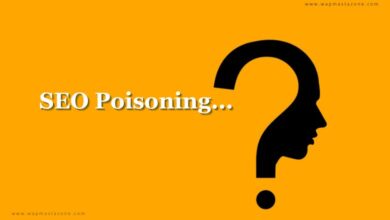
Who is an SEO Expert?
An SEO expert is a person who is considered to be a specialist in the area of search engine optimization. Someone who specializes in optimizing websites to improve their ranking on search engines. An SEO expert is someone who has a thorough understanding of search engine algorithms and uses their knowledge to enhance a website’s visibility and ranking on search engine results pages (SERPs). SEO experts use a variety of techniques to achieve this, including keyword research, on-page optimization, link building, and content creation.
Suggested read: What is SEO?
How Can I Become an SEO Specialist?
Perhaps, I can already address this question before I dive deep into the pathway to becoming an SEO expert or Specialist. I am not very certain if SEO is taught as a university course, as most web designers, content creators, digital marketers, and search engine optimizers pick up the knowledge and skills with time as they grow in their field. However, below is the roadmap you need to take;
- Learn the Basics of SEO
- Understand the Essential SEO & Web Auditing and Monitoring Tools
- Knowing and Understanding the Types of SEO?
- Understand the Important Search Engine Ranking Factors
- Take Online SEO Certification Courses
- Build a Portfolio and learn by optimizing your own website
- Work with a Company
- Keep up With Search Engine Algorithms
- Build your Network
- Understand the Responsibilities of An SEO Specialist?
Suggested read: SEO Education – 7 Reasons Why SEO Isn’t Taught in College
Suggested read: 15 Top SEO Experts and Specialists
What Skills Should an SEO Expert Know?
1. Getting Started – Learn the Basics of SEO
a. An SEO Expert Should Understand How Search Engines Work
Before going into SEO tactics, it is essential to have an understanding of how search engines work. Search engines use complex algorithms to determine which websites and pages rank higher in search results. Therefore, a thorough understanding of search engine algorithms, ranking factors, and search engine optimization best practices are crucial for anyone who wants to become an SEO expert.
Search engines use web crawlers, also known as spiders or bots, to gather information about web pages. These crawlers follow links between pages, and they collect information on the content and structure of each page they visit. This information is stored in a massive database called an index.
When a user types in a search query, the search engine retrieves relevant pages from its index and ranks them based on various factors. These factors include the content’s relevance to the search query, the page’s popularity, and the quality of its backlinks. The search engine then displays the results in order of relevance, with the most relevant pages appearing at the top of the list. Search engines also use algorithms to determine which results to show to the user. These algorithms are complex mathematical formulas that consider a vast number of factors to determine the most relevant results. The algorithms are updated regularly to ensure they stay up-to-date with changes in technology and user behavior.
Also read: 40 SEO Faqs (SEO Frequently Asked Questions)
Related: 10 Completely Free SEO Courses For SEO Beginner
b. Understanding Robots.txt:
An SEO Expert must also understand how to properly use Robots.txt file which is the search engine’s first point of contact on any website. The robots.txt file is a file that is placed in the root directory of a website. It is a text file that instructs web robots, also known as spiders or crawlers, on how to interact with the website’s pages. The file contains instructions for web robots on which pages to crawl and index and which pages to ignore.
The robots.txt file allows website owners to prevent search engines from indexing certain pages, files or directories, that they do not want to be included in search results. For example, if a website has an admin section that contains sensitive information, the website owner may want to prevent search engines from indexing those pages.
The robots.txt file can also be used to limit the rate at which web crawlers access a website to prevent server overload. Website owners can specify the crawl delay for specific user agents in the robots.txt file. It’s important to note that the robots.txt file only serves as a guide for web robots, and some crawlers may ignore it or follow the instructions partially. Additionally, the robots.txt file does not prevent access to a website or its content, and it does not provide any security measures.
c. Understanding Basic HTML CSS and Javascript:
An SEO expert doesn’t necessarily have to have an in-depth knowledge of web development but must at least have a basic knowledge of HTML, CSS, and javascript. Also having a basic knowledge of content management systems (CMS) like WordPress, and WIX would be helpful since millions of websites run on these platforms. Having a basic understanding of HTML, CSS, and JavaScript can help you to identify and fix technical SEO issues.
d. Understanding Content Creation:
Content creation is the process of developing and producing valuable, engaging, and relevant information that can be distributed through various media platforms to a target audience. It involves generating ideas, conducting research, writing, editing, designing, and publishing content that meets the specific needs and interests of the audience. Content creation is crucial for businesses and individuals looking to build brand awareness, attract and retain customers, and establish credibility in their industry.
e. Learn Keyword Research:
Keyword research is the process of identifying the words and phrases that people use to search for information online. Understanding how to conduct keyword research is essential for SEO experts. By identifying the keywords that people use to search for information, you can optimize your website’s content to target those keywords. Keyword research tools such as Google Keyword Planner, Ahrefs, and SEMrush can help you to identify the keywords that people use to search for information.
f. Understand Link Building:
Link building is the process of acquiring links from other websites to your website. Link building is an essential component of SEO, as search engines use links to determine the authority and relevance of a website. However, not all links are created equal. High-quality links from reputable websites can help to improve your website’s search engine rankings, while low-quality links can harm your website’s rankings. To become an SEO expert, it is essential to understand how to build high-quality links and avoid low-quality links.
g. Develop your Analytical Skills:
For anyone seeking to become an SEO expert, you need to be analytical and data-driven. You need to have a good understanding of web analytics tools, such as Google Analytics, to measure and analyze your website’s performance. Analyzing data can help you to identify areas where your website can be improved, and also to identify which SEO tactics are working and which ones are not. By developing your analytical skills, you can make data-driven decisions that can help to improve your website’s search engine rankings.
h. Communication:
Communicating effectively with clients, stakeholders, and team members to ensure project success.
Also read: 13 Key Indications that your SEO Strategy is Successful
2. Understand Essential SEO & Web Auditing and Monitoring Tools
An SEO audit is a process of analyzing website(s) presence, ranking, and performance in order to ensure the best SEO practices. The aim of an SEO audit is to determine and address fundamental problems that impact the performance of a website.
There are so many SEO monitoring and auditing tools on the market but below is the list of some essential and free SEO and web auditing tools an SEO expert or specialist should know how to use
- Google Analytics
- Google search console
- Google trends
- Google Keyword planner
- Page Speed Insights
- Bing webmaster tools
- Ahrefs
- Ubersuggest
- SEO Optimizer
- SpySuggest
- Semrush
- Moz
Also check: Top Affiliate Programs you can join and Start Earning
3. Knowing and Understanding the Types of SEO
On your pathway to becoming an SEO Specialist should understand the different types of search engine optimization. Search engine optimization has been categorized into different types which include;
a. ON-Page SEO:
On-page SEO is also known as on-site SEO and it is an SEO practice that involves the optimization of a web page for search engines and readers in order to rank higher on search engines and also get organic traffic.
Factors that affect on-page SEO include content quality, focus keywords, link building, optimized metadata, title tags, meta description, optimized URL, image optimization, and backlinks. Learn more about ON-Page SEO from the suggested article below;
Suggested read: The Concept of ON Page SEO – Ultimate Guide
b. OFF-Page SEO:
Off-Page SEO refers to all the activities that are done outside the website to improve its search engine ranking. It includes everything that happens beyond the website, such as social media marketing, link building, brand mentions, and other forms of online promotion.
The primary goal of Off-Page SEO is to create a positive image of the website in the eyes of search engines and users. Learn more about OFF-page SEO from the suggested article below;
Suggested read: The Concept of OFF Page SEO – Ultimate Guide
c. Technical SEO:
It is an SEO practice that includes website and server optimization so that it is fast, and user-friendly and helps web crawlers to index your site more effectively. These include connecting the website to google analytics and google webmaster, submitting sitemaps for crawler access, updating txt files, improving website readability, and so on.
Fixing this technical part makes it easy for web crawlers to easily find your website data and index it properly. These factors must be put into consideration when doing technical SEO include; web security, XML sitemap, site structure, web speed, and so on. Learn more about Technical SEO from the suggested article below;
Suggested read: What is SEO?
d. Local SEO:
It refers to the practice of optimizing a website’s visibility in search engine results pages (SERPs) for local queries. Local SEO is focused on improving a business’s online presence in a specific geographic area, typically within a city or region.
For example, if someone searches for “coffee shop near me” or “best coffee shop in [city name],” the search engine will display results that are relevant to the user’s location. Local SEO is designed to help businesses appear higher in those search results by optimizing their website and online presence to be more visible to local searchers.
4. Understand the Important Search Engine Ranking Factors
Search engines use a variety of factors to determine the relevance and authority of a website and may change from time to time. On your pathway to becoming an SEO Expert or specialist, you should understand these factors as they are crucial for search engine ranking. Here are some of the most important ranking factors to consider:
- Relevant and high-quality content: Google prioritizes websites that have high-quality, relevant content that provides value to users.
- Backlinks: The number and quality of links pointing to your website from other authoritative websites can greatly impact your ranking on Google.
- User experience: Google takes into account factors such as page loading speed, mobile-friendliness, and ease of navigation to determine a website’s user experience.
- Domain authority: The overall authority of your website, including factors such as domain age, popularity, and trustworthiness, can also play a role in determining your ranking on Google.
Recommended: Free Domain Authority Checker - Page authority: Individual pages on your website can also have their own authority and ranking, based on factors such as the relevance and quality of the content, backlinks, and user experience.
Recommended: Page Authority Checker - Page Speed: Fast-loading web pages have a better chance of ranking higher on search engines.
Recommended: Free Page Speed Checker , Recommended: Google Page Speed Insights - Mobile-Friendliness: With the increasing use of mobile devices, having a mobile-friendly website is crucial for SEO success.
- User Experience: A website that provides a good user experience is more likely to rank higher on search engines.
- Social signals: Social media shares and engagement with your content can also signal to Google that your website is valuable and relevant to users.
5. Take Online SEO Certification Courses
An SEO certification is a proof of completion of an online SEO course or training, typically provided in the form of a PDF document that can be added to your CV or LinkedIn profile after successful completion. Below are some Free online courses you can take;
- SEO Crash Course by Semrush
- Google SEO Fundamentals by UC Davis
- Advanced Search Engine Optimization Program by Simplilearn
- SEO Certification Course by HubSpot
6. Build a Portfolio
If you wish to pursue SEO as a career after gathering enough knowledge, then you may consider building your own website or portfolio. It could be a content base blog focusing on one niche where you can target some keywords, write resources and articles on them, implement SEO strategies, and then rank on search engines. This way, you can put this in your CV in order to have an edge over others competing for the same job.
If you do not want to build a website of your own, you can write some engaging guest posts for carefully selected websites where your article stands the chance of ranking quickly having done proper optimization for the articles.
Recommended: How to Choose a Good Web Hosting for your Website or Business
Also read: 14 Ultimate Tips for Domain Name Buying & Selling
7. Work with a Company
On your pathway to becoming an SEO expert, it is essential to implement all you have learned, and working with an SEO-based company or digital marketing company could allow you to break through. This way you can put your work into practice while you learn.
8. Keep up With Search Engine Algorithms
Keeping up with search engine algorithms can be challenging, as they are constantly changing and evolving. However, there are several steps you can take to stay up-to-date:
- Follow industry news: Subscribe to reputable SEO blogs and newsletters to stay informed about the latest changes and updates in search engine algorithms.
- Attend conferences and events: Attend industry conferences and events to learn from experts and network with other professionals in the field.
- Experiment and test: Conduct experiments and tests to see how different strategies and tactics affect search engine rankings. This will help you stay informed about what works and what doesn’t.
- Use reliable tools: Use reliable tools to monitor your website’s performance and keep track of changes in search engine algorithms.
- Focus on quality content: Rather than trying to game the system with manipulative tactics, focus on creating high-quality content that provides value to your audience.
- Understand user intent: Focus on understanding user intent and providing the best possible user experience on your website, as this is becoming increasingly important for search engine rankings.
Recommended: Free SEO Analyzer
Recommended: Free Seotools
9. Build your Network
Building a network of like-minded professionals can help you to learn new things, share ideas, and get feedback on your work. You can join SEO groups on social media, attend industry conferences, and participate in online forums and communities. Building a network of professionals can also help you to stay informed about industry changes and trends.
10. What Are the Responsibilities of An SEO Specialist?
The duties of an SEO Specialist can differ based on their work setting, whether they are employed by a digital marketing agency, the digital marketing division of a company, or working independently for a client. However, the majority of job postings for SEO Specialists will contain almost all, if not all, of the following responsibilities in their job description, such as;
- Formulating optimization strategies to enhance the company’s website search engine rankings
- Conducting tests and analyzing data and results for paid search campaigns to attain maximum ROI, while identifying trends and insights
- Managing SEO campaign expenses, by estimating monthly costs, staying within budget, and reconciling differences
- Performing keyword research and finding high search volume keywords with low SEO difficulties for content creation
- optimization and discovery of new relevant keywords for the company website
- Taking charge of page optimization for search engine marketing
- Creating engaging and high-quality website content, including blog posts and page descriptions, to improve website search results.
- Collaborating with the web development team to ensure adherence to SEO best practices throughout the website content
- Coordinating with editorial and marketing teams to drive SEO in content creation and content marketing
- Implementing search engine optimization recommendations that are well-researched
- Developing and executing link building strategy
- Improving SEO positions for target keywords through website architecture changes, content, and linking
- Establishing measurable goals that exhibit progress in marketing efforts
- Monitoring SEO strategy performance with tools like Google Analytics to analyze daily performance metrics
- Collaborating with other marketing department members to manage SEO strategy
[ads2]
Also read: 7 Most Common SEO Mistakes you Should Avoid
Suggested read: 6 Ultimate Dangers of Using Free Public WiFi
Are you Looking For An SEO Expert?

Are you looking for an SEO specialist? We can help you implement the best SEO strategies.
Hire Us – write us at “seo @ wapmastazone.com” with the Subject “Looking for an SEO Expert”
Bonus: Web and SEO Tools
Free Web & Seotools Categories Websites ![]() 30+ Free SEOTools
30+ Free SEOToolsWeb/Seotools https://www.my-seotools.com/ ![]() DomainTools
DomainToolsIP/Domaintools https://www.domainlista.com/ ![]() Webtools
WebtoolsWebtools/Domaintools https://webtools.domainlista.com/ ![]() DNS Checker
DNS CheckerWebtools https://dnschecker.me/ ![]() What is my IP Address?
What is my IP Address?Web tools/IP Address Checker https://www.readmyip.com ![]() SEO Analyzer
SEO AnalyzerSeotools https://seoanalyzer.wapmastazone.com/ ![]() 50+ SEOTools
50+ SEOToolsWeb/Seotools https://seotools.wapmastazone.com/ ![]() Site Worth Checker
Site Worth CheckerSeotools https://siteworth.wapmastazone.com/ ![]() SEO Checker
SEO CheckerWeb/Seotools https://www.spysuggest.com/ ![]() Qr Code Generator
Qr Code GeneratorWebtools/Qr Generator https://qr-codegenerator.me/ ![]() SEO Optimizer
SEO OptimizerSeotools https://seooptimizer.me/




